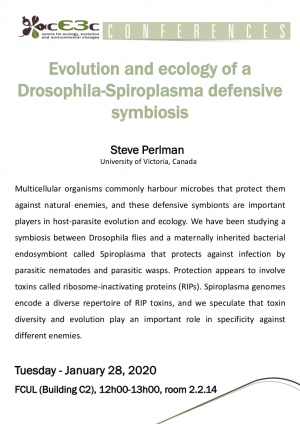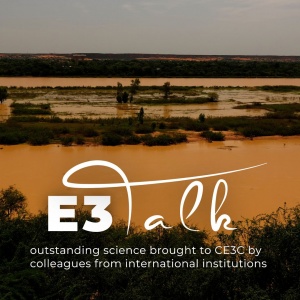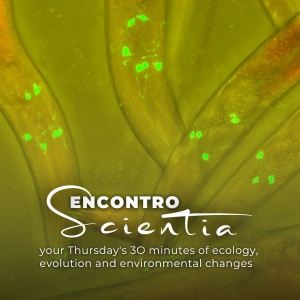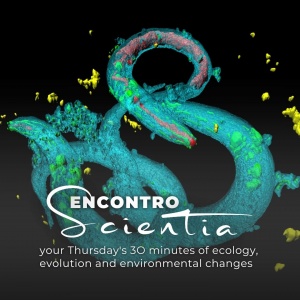Evolution and ecology of a Drosophila-Spiroplasma defensive symbiosis
Steve Perlman
University of Victoria, Canada
Multicellular organisms commonly harbour microbes that protect them against natural enemies, and these defensive symbionts are important players in host-parasite evolution and ecology. We have been studying a symbiosis between Drosophila flies and a maternally inherited bacterial endosymbiont called Spiroplasma that protects against infection by parasitic nematodes and parasitic wasps. Protection appears to involve toxins called ribosome-inactivating proteins (RIPs). Spiroplasma genomes encode a diverse repertoire of RIP toxins, and we speculate that toxin diversity and evolution play an important role in specificity against different enemies.
Tuesday - January 28, 2020
FCUL (Building C2), 12h00-13h00, room 2.2.14







